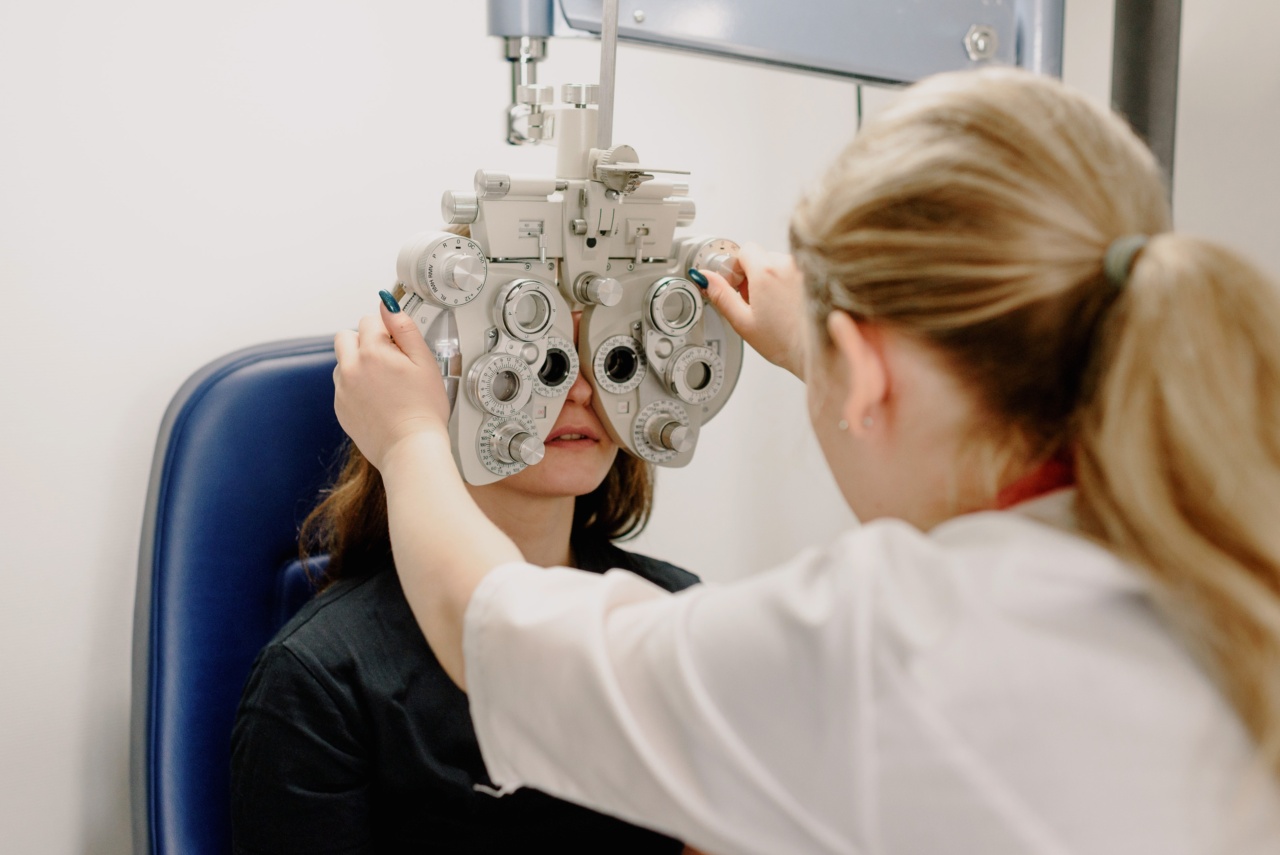Many people take their eyesight for granted and fail to realize its importance until they begin facing vision problems. A routine eye exam is essential for maintaining good eye health and preventing potential vision problems.
Yet, many people tend to ignore eye exams which can potentially lead to detrimental effects on their eyesight and overall health.
What are the risks of ignoring an eye exam?
Delaying or avoiding an eye exam can have severe consequences in the long run. Here are some of the risks you may encounter:.
1. Delaying the diagnosis of serious eye conditions
Many serious eye conditions, such as glaucoma and macular degeneration, often do not show any symptoms in the early stages. The only way to detect these conditions is through a comprehensive eye exam.
Delaying your regular eye exam may result in missed opportunities to diagnose and treat these conditions early on, and this in turn would increase the risks of experiencing vision loss.
2. Missed opportunities for vision correction
It is not uncommon for people to lose their ability to see clearly due to refractive errors. These errors can be caused by farsightedness, nearsightedness, and astigmatism.
An eye exam could reveal the underlying cause of these errors, and corrective lenses may be recommended to enhance your vision. Ignoring an eye exam could result in missed opportunities for vision correction, and this would ultimately impact your ability to perform daily tasks effectively.
3. Ignoring underlying health issues
The eyes can provide insights into your overall health. Many health problems, such as high blood pressure and diabetes, can have an impact on your eye health.
An eye exam could reveal signs of these underlying conditions, allowing you to seek appropriate medical attention before they develop into more serious health problems.
4. Worsening eye conditions and related discomfort
A wide range of eye conditions, such as dry eye syndrome and blepharitis, can cause discomfort and negatively impact your quality of life.
An eye exam could reveal the underlying cause of these conditions, and early treatment can help prevent them from worsening and causing additional discomfort.
5. Financial costs associated with untreated conditions
Delaying an eye exam could ultimately end up costing you more in the long run. Untreated conditions may result in the need for expensive medical treatments or procedures. In some cases, they may even lead to permanent vision loss.
Early detection through a routine eye exam can help prevent this from happening.
How can an ophthalmologist help?
An ophthalmologist is a medical doctor who specializes in the diagnosis and treatment of eye diseases and disorders. They can help prevent some of the risks mentioned above and help you maintain good eye health by:.
1. Conducting comprehensive eye exams
Ophthalmologists can perform comprehensive eye exams which can detect eye diseases and underlying health issues that can affect your vision.
2. Providing vision correction services
If you have refractive errors, an ophthalmologist can recommend suitable corrective lenses that can enhance your vision.
3. Recommending treatment for eye conditions
Should an ophthalmologist discover any eye conditions, such as glaucoma or macular degeneration during an eye exam, they can recommend the appropriate course of treatment to help prevent progression of the disease and vision loss.
4. Offering consultations on eye health and safety
Ophthalmologists are experts in eye care, and they can offer advice on how to maintain good eye health and protect your eyes from damage.
Conclusion
The importance of regular eye exams for maintaining good eye health cannot be overemphasized. When left untreated, eye problems can lead to missed opportunities for early detection and treatment, resulting in potentially life-altering effects.
Contact your ophthalmologist to schedule your next eye exam and keep your eyes healthy.


























